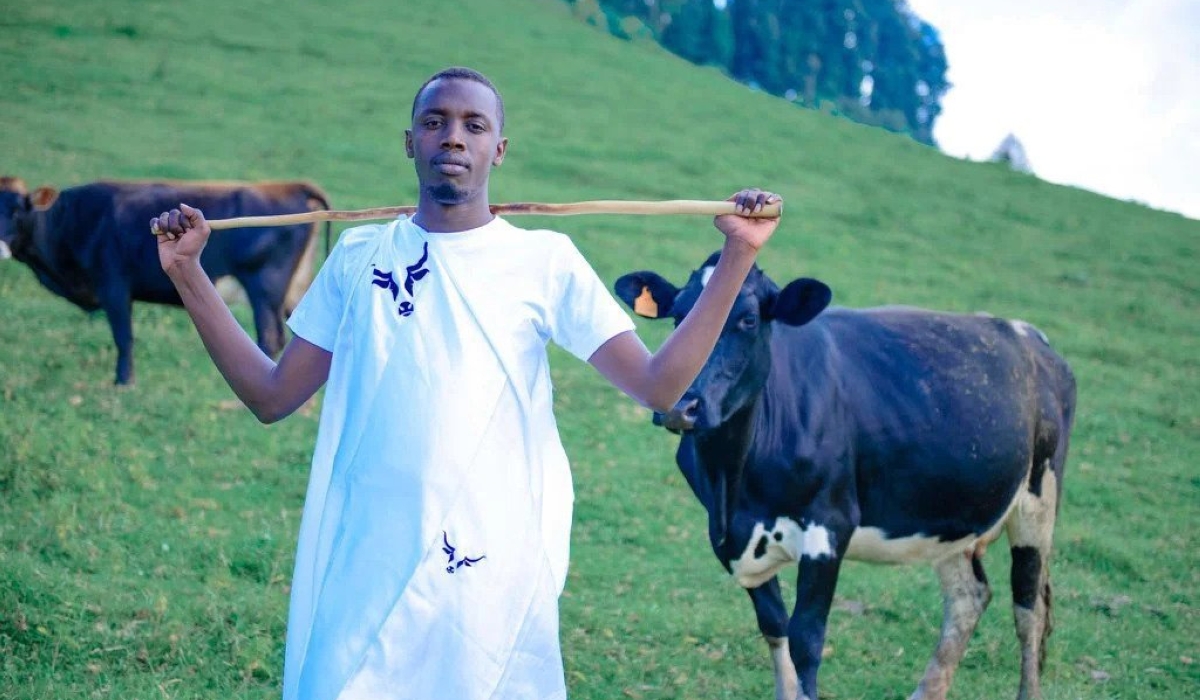
Cattle keeper revives Rwanda’s heritage through cow tourism
Story by Ethan Tashobya
Under the crisp, starry sky of Bigogwe village in northeastern Rwanda, a magical scene unfolds. Ngabo Karegeya, a cattle farmer and storyteller, stands beside a crackling fire, his voice resonating with the rich history of his homeland. Known affectionately as “Ibere rya Bigogwe,” a name borrowed from a prominent rock in the region, Ngabo has become a beacon of cultural revival through an innovative initiative called “cow tourism.”
This unique experience draws tourists from near and far, including members of the Rwandan diaspora eager to reconnect with their roots. They gather around the fire, listening intently as Ngabo and his siblings recount ancient tales and folk songs. The stories, steeped in tradition and emotion, weave a tapestry of Rwanda’s rich cultural heritage, leaving the audience mesmerized.
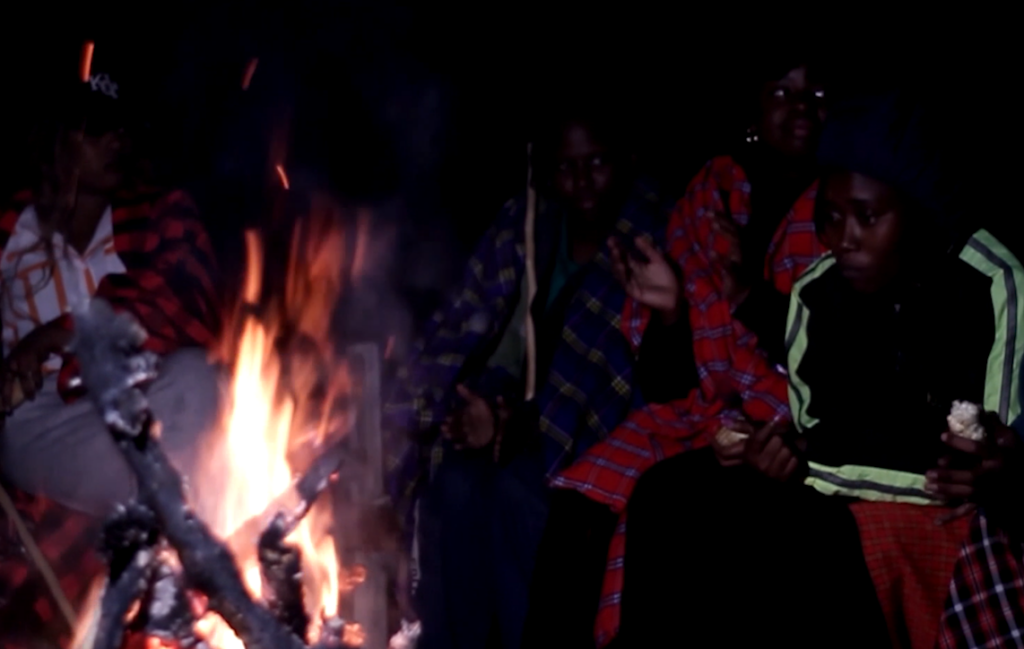
As the night deepens, the group enjoys roasted maize, savoring the simple yet profound flavors of traditional Rwandan cuisine. The highlight of the evening comes when they drink fresh milk from bamboo pots, a ritual that connects them deeply to the land and its age-old practices. The warmth of the fire and the rich taste of the milk create a sense of camaraderie, bridging the gap between diverse cultures and languages.
For many, this is their first encounter with the authentic lifestyle of an ancient Rwandan cattlekeeper.
“My motivation to come here is to see the real life of Rwandan people and those who are always with cows,” says Kelly Musabyimana, a Rwandan living in Belgium. “We arrived when it was already dark, but the fireside vibe was amazing. It’s very cold here, and we enjoyed traditional food,” adds Meghan Kagisha, another visitor from Belgium.
Dawn breaks, bathing the Bigogwe hills in a golden hue, revealing a breathtaking panorama. Tourists, emerging from their tents, are greeted by the serene beauty of the landscape. Ngabo leads them to the cows, where they learn the delicate art of milking. The experience, described as both humbling and exhilarating, offers a glimpse into the daily life of Rwandan farmers. “It was my first time milking cows. It was easier than I expected,” Kagisha remarks. Musabyimana echoes this sentiment, marveling at the sight of the cows grazing on the hills.
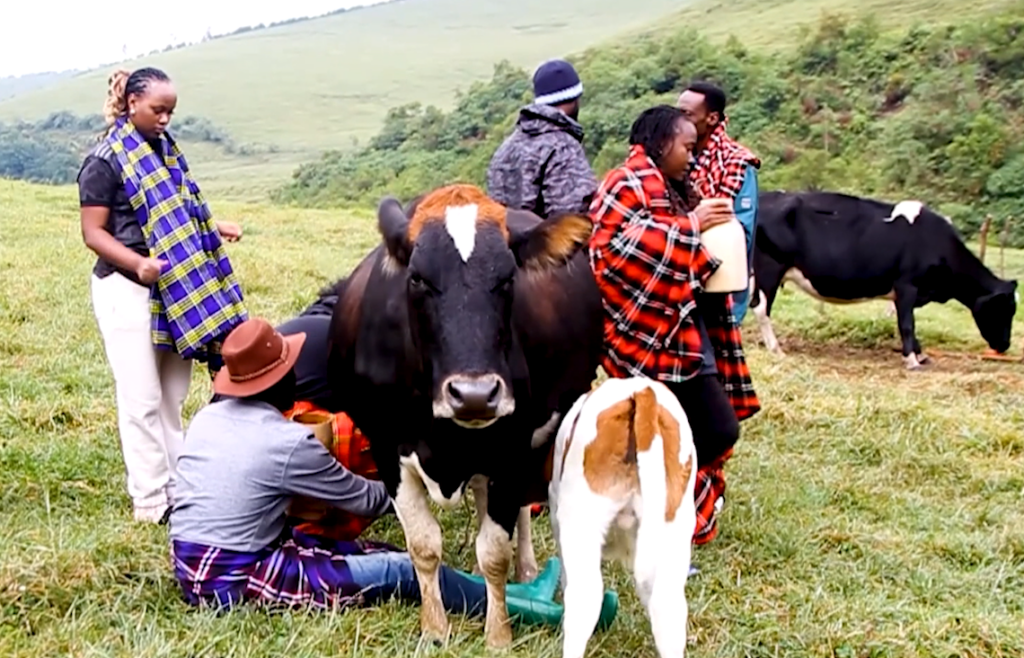
The story of Ngabo Karegeya’s cow tourism began in 2020, during the COVID-19 pandemic. A university graduate, Ngabo returned to his family’s farm when the lockdown interrupted his studies. It was here, amid the tranquility of Bigogwe and the companionship of cows, that he conceived the idea of cow tourism, naming it after the rock that symbolizes strength and endurance in his culture, “Ibere Rya BIGOGWE.”
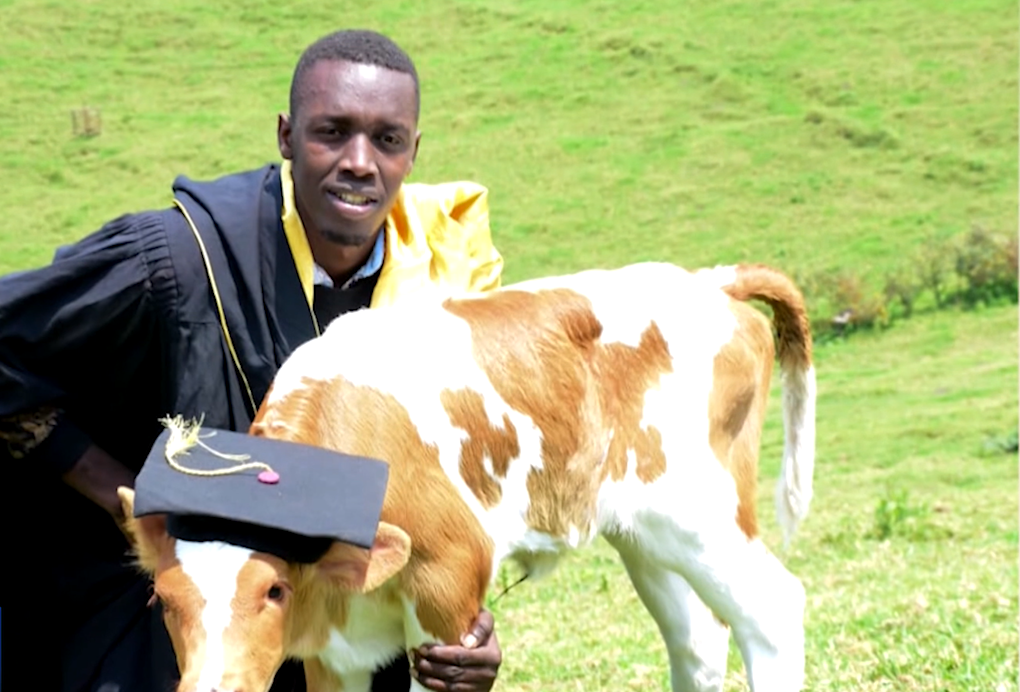
“I wanted to promote my home, to show the world the beauty of Bigogwe,” Ngabo explains. His initiative quickly gained traction, with a viral photo of him and the cows sparking widespread interest. Recognizing the cultural significance of cows in Rwandan society, he sought to create a sustainable way to share this heritage with others. In early 2023, Rwanda’s cabinet granted him a five-hectare piece of land, enabling him to modernize and expand his project independently.
Through the Ibere Rya Bigogwe Tourism Company, Ngabo has not only preserved the traditions of his ancestors but also created a unique platform for cultural exchange. The initiative offers a range of activities, from teaching visitors how to milk cows and make ghee, to hiking the beautiful green farms and the iconic Ibere rya Bigogwe rock. Visitors can also enjoy camping under the stars, tasting local traditional foods, and participating in cowboy games.
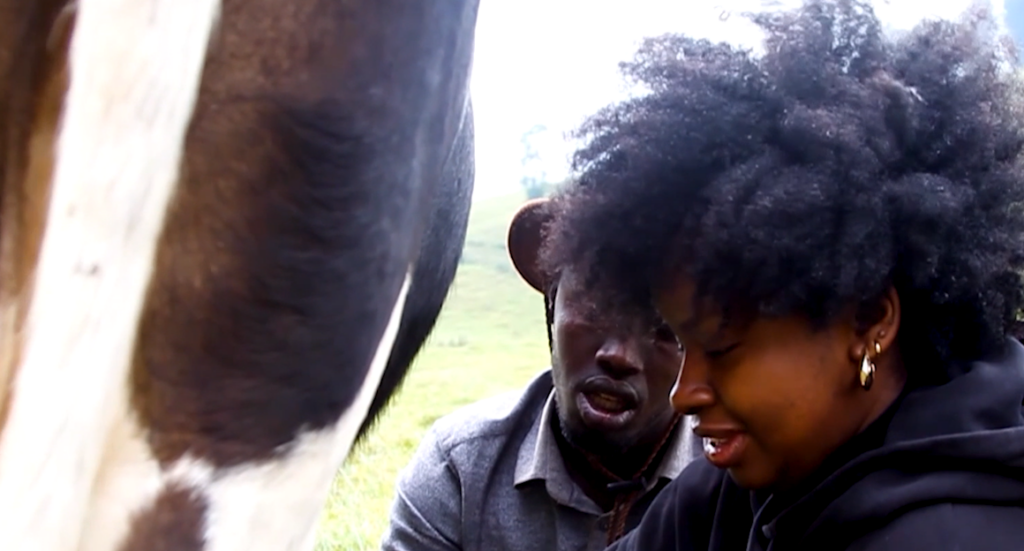
For many tourists, the most fascinating part of this adventure is learning how to milk a cow. It offers them a rare insight into the origins of the milk they consume daily, far removed from the convenience of a nearby shop. “For people living in cities like Kigali or in Europe, where nature is ‘scarce’, this is a refreshing and educational experience,” says Kagisha. “It’s important to step out of your routine and experience something different.”
Ngabo Karegeya’s cow tourism initiative is more than just a tourist attraction; it’s a heartfelt tribute to Rwanda’s rich cultural heritage. Through his efforts, Ngabo is not only reviving Bigogwe’s traditions but also inspiring a deeper appreciation for the simple, yet profound, lifestyle of a Rwandan cattle keeper. In doing so, he ensures that the stories, practices, and values of his ancestors are celebrated and preserved for generations to come.






